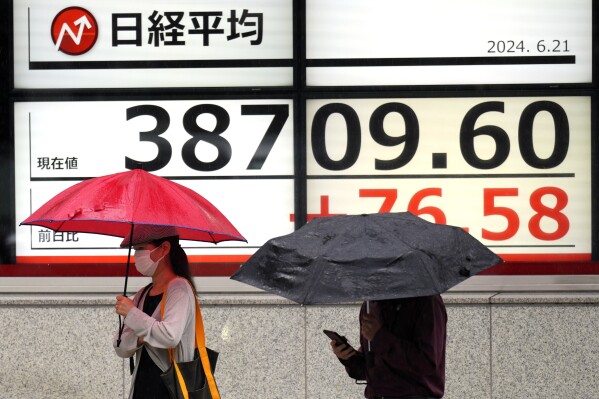Britain’s debt burden hit its highest level since 1961 in May putting it within a hair’s breadth of the size of the entire economy.
National debt rose to £2.7 trillion last month, the Office for National Statistics (ONS) said, as the Government borrowed a further £15bn in May.
It underscores the challenge the next government will face as Rishi Sunak struggles to bring borrowing under control ahead of the general election next month.
Borrowing increased compared with the same month a year ago as a rise in tax receipts was outstripped by a steeper increase in benefit payments.
Although support for energy bills was down, there was also a £2.2bn increase in spending on benefits, which the ONS said was largely caused by the spring increase in line with inflation. Britain now spends just over £25bn per month on welfare.
Taxes brought in £76.8bn for central government, up by £1bn on the year, despite the two cuts to the headline rate of employees’ National Insurance. Income tax, VAT and corporation tax all raked in more cash for the Exchequer.
However, central government spending increased by £2.8bn to £91.6bn for the month.
Meanwhile, the cost of servicing government debt totalled £8bn.
The next government faces tough choices on taxes and spending as the finances are already close to the borrowing targets set by Jeremy Hunt, the Chancellor.
The importance of prudent fiscal management has been brought into sharp focus by events in France. Financial markets are in turmoil amid concerns over Emmanuel Macron’s debt binge and fears that Marine Le Pen’s low-tax, high-spending party, National Rally, will succeed at the polls.
Thomas Pugh, economist at RSM UK, said Britain’s sustained borrowing indicates that the next government will be under pressure to raise more taxes if it wants to avoid spending cuts.
He said: “Given that the current tax and spending plans look extremely difficult to fulfil, the new government is going to have to raise more in taxes, or borrow more. Simply keeping non-protected departments’ budgets stable in real terms will add an extra £20bn to government spending.
“With both main parties having ruled out tax raises to the three main revenue raisers, income tax, National Insurance and VAT, and having signed up to similar fiscal rules, the next government has a very tough balancing act to perform to avoid another dose of austerity for already stretched government departments.”
Disclaimer: The copyright of this article belongs to the original author. Reposting this article is solely for the purpose of information dissemination and does not constitute any investment advice. If there is any infringement, please contact us immediately. We will make corrections or deletions as necessary. Thank you.



